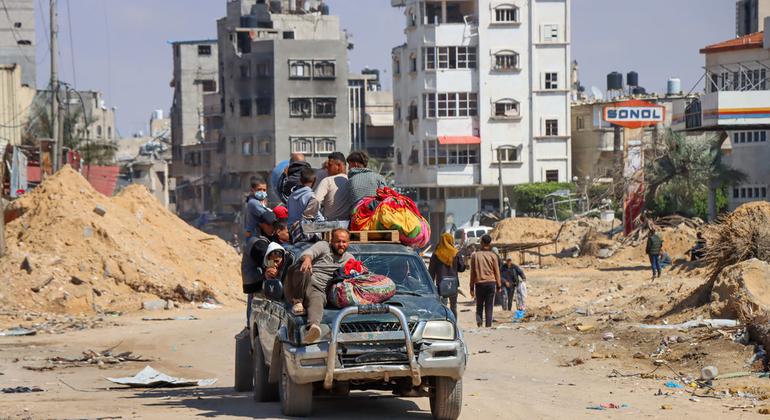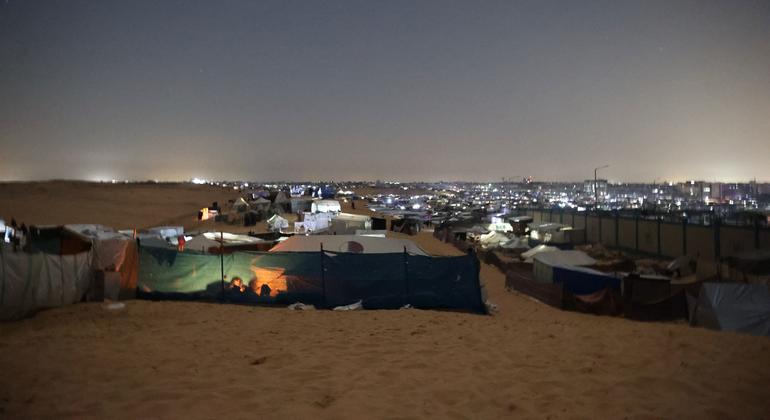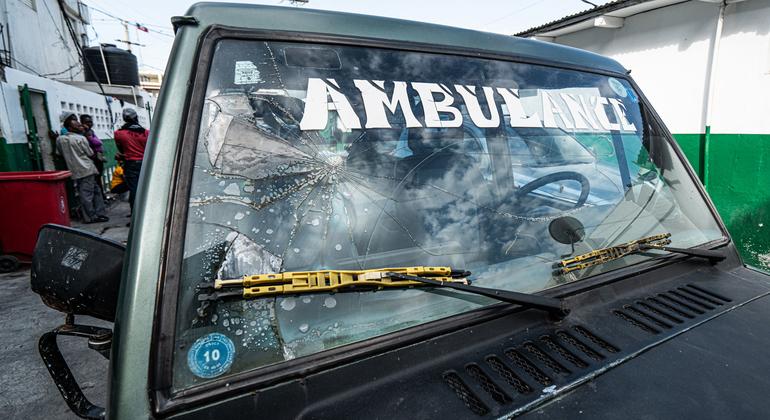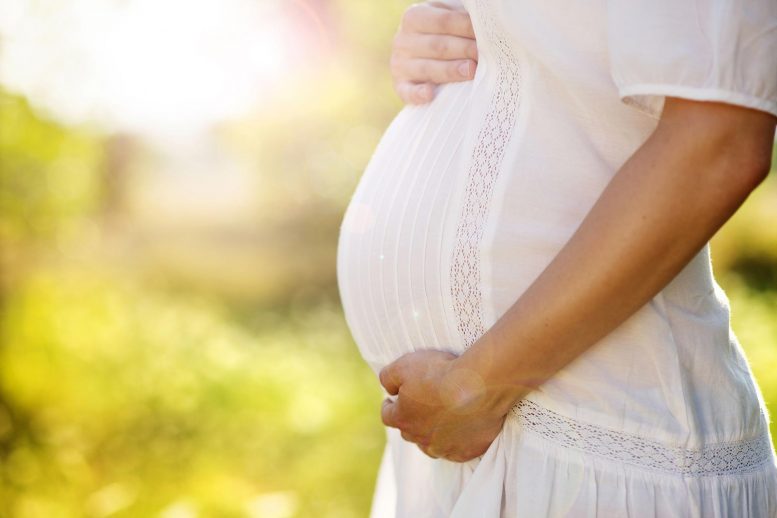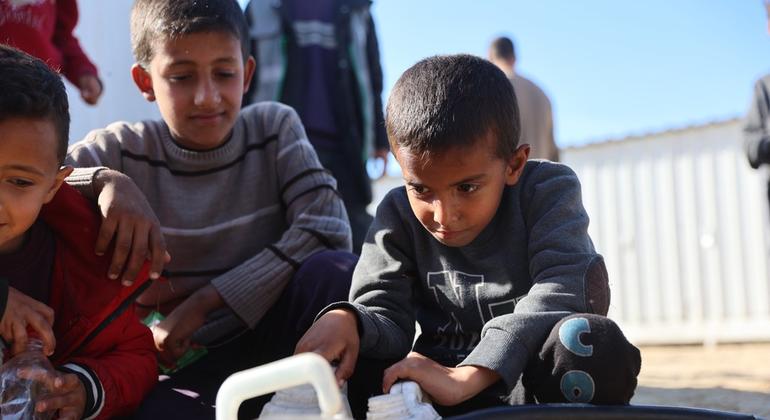In a statement, Volker Türk urged authorities in Kampala to repeal it in its entirety, together with other discriminatory legislation passed into law by parliamentary majority.
“Close to 600 people are reported to have been subjected to human rights violations and abuses based on their actual or imputed sexual orientation or gender identity” since being enacted last May, said Mr. Türk.
“It must be repealed in its entirety or unfortunately this number will only rise.”
He called on politicians to uphold the rights and dignity of all, regardless of sexual orientation or gender identity.
“Criminalization of and application of the death penalty to consensual same-sex relations are contrary to Uganda’s international human rights treaty obligations.”
Constitutional rights
He pointed out that even Uganda’s own constitution demands equal treatment and non-discrimination.
“It is crucial that the authorities also repeal Section 145 of the Penal Code Act, which also imposes criminal penalties for consensual same-sex sexual relations”, he added, together with enshrining sexual orientation and gender identity “as prohibited grounds for discrimination.”
Mr. Türk said there needed to be “a conducive environment for all human rights defenders – including LGBTQ rights advocates – to carry out their legitimate human rights work” including by enabling them be work openly without discrimination and exercise their rights to freedom of expression, association and peaceful assembly.
Healthcare in Haiti under attack by armed gangs
Hospitals in Haiti’s capital have come under increasing attack by armed gangs, with some being looted amidst the ongoing turmoil, the UN humanitarian coordination office, OCHA, reported on Wednesday.
A UNFPA-supported mobile health team visits a site for displaced people near Haïti’s capital Port-au-Prince.
Two healthcare facilities in Port-au-Prince were forced to shut down, while two others remain closed despite plans to reopen, after being shuttered due to the rising violence.
Only La Paix University Hospital remains operational in the capital area, and it has come under significant strain due to rising demand for its services.
The Delmas 18 Hospital and Saint Martin health centre were both looted on 26 and 27 of March.
PAHO, the UN-administered Pan American Health Organization, is providing it with essential supplies such as medicines, fuel, and logistical assistance to help it keep services going.
Pharmacies raided
According to OCHA, armed groups have also targeted and raided some 10 pharmacies in Haiti’s capital, severely hindering public access to medications.
Rising violence has also affected the work of HIV and tuberculosis service sites. Local UNAIDS services are collaborating with Haiti’s Health Ministry, with HIV testing being prioritized.
Amid a political vacuum, Haiti’s powerful gangs have launched coordinated attacks on various targets since February, including police stations, prisons, airports, and seaports, resulting in the resignation of Prime Minister Ariel Henry three weeks ago.
While a state of emergency is in effect, a transitional government has yet to be established.
On Tuesday the World Food Programme (WFP) distributed hot meals to over 28,000 people in the capital and last week the UN health agency (WHO), children’s agency (UNICEF) and local partners carried out nearly 600 consultations in displacement sites.
UN in Sudan and South Sudan team up to make crucial aid deliveries
Responding to the critical needs of civilians impacted by the ongoing war in Sudan, the World Health Organization’s (WHO) country teams there and in neighbouring South Sudan have teamed up to deliver supplies to the Blue Nile and Nuba Mountains.
The ongoing crisis has significantly impeded the ability of the WHO office in Sudan to access and deliver essential emergency medical supplies to the two regions, said WHO in a statement on Wednesday.
By leveraging the South Sudan office’s logistical expertise, and available resources, emergency health kits have been prepositioned from existing stockpiles in areas along the Sudan-South Sudan border, ensuring timely and effective assistance to those in dire need.
Commitment to collaboration
The joint effort is a testament to the commitment of both offices to cross-border collaboration, and the inter-agency emergency health supplies are expected to serve approximately 830,000 people in the conflict-affected Blue Nile and Nuba Mountains areas for the next three months.
The shipment is the second that WHO South Sudan has been able to deliver across the border since the outbreak of the brutal conflict between rival militaries nearly a year ago.
The dispatch of the supplies is part of WHO’s continuous relief efforts in support of the Sudanese people, the agency said.
Egypt must halt executions, urge UN human rights experts
A group of independent UN human rights experts on Wednesday expressed grave concern after death sentences were handed down to seven people by Egypt’s highest court in January, in the years long so-called “Helwan Brigade” counter-terrorism case.
Their executions would constitute arbitrary killings in violation of the right to life due to unfair trials and other human rights violations, they said in a statement.
Suspected Helwan Brigade members were accused of targeting security forces in the wake of the military coup against former democratically-elected President Mohamed Morsi more than 10 years ago.
Follow international law
“Capital punishment may only be carried out after a legal process that guarantees all of the safeguards required by international human rights law,” the Human Rights Council-appointed experts said.
The cases allegedly involved grave violations of international law, including enforced disappearances and incommunicado detention, torture and forced confessions, denial of access to lawyers and family visits, protracted pre-trial detention, solitary confinement, and mass trials before special terrorism courts which did not meet fair trial standards.
“Egypt has also failed to independently and effectively investigate and remedy these alleged violations as required by international and Egyptian law,” they said.
The death sentences further violate international law because they are based on convictions for vague and overly broad terrorist offences, the experts added.
There is also a real risk that executions in practice may constitute prohibited torture or cruel, inhuman and degrading treatment.
“We urge Egypt to halt these executions, to independently investigate the alleged human rights violations and review the judicial proceedings in light of Egypt’s international obligations,” they said.
Rapporteurs and other UN rights experts are independent of any government, are not UN staffers and receive no salary for their work.




